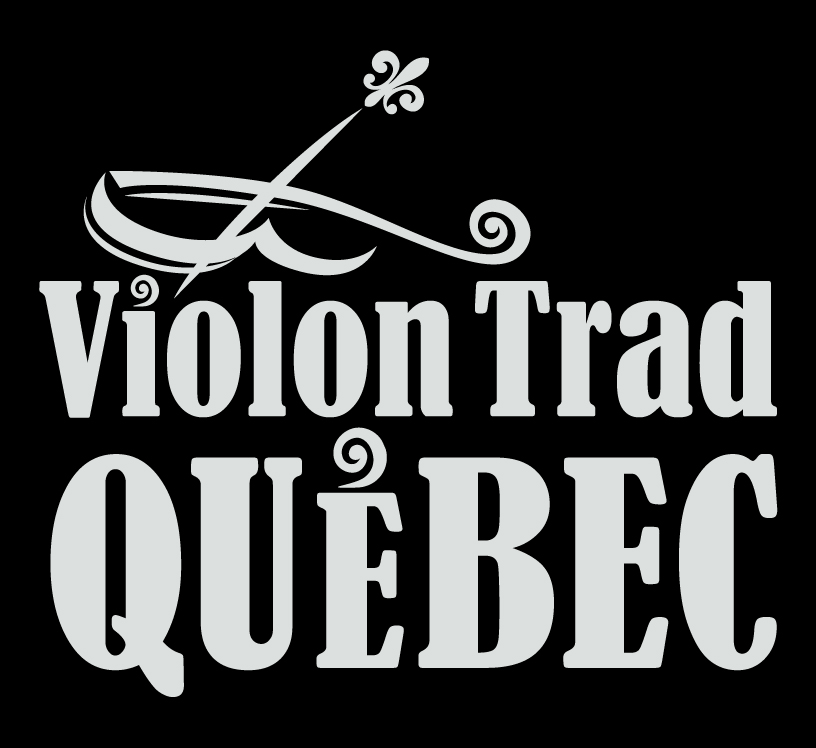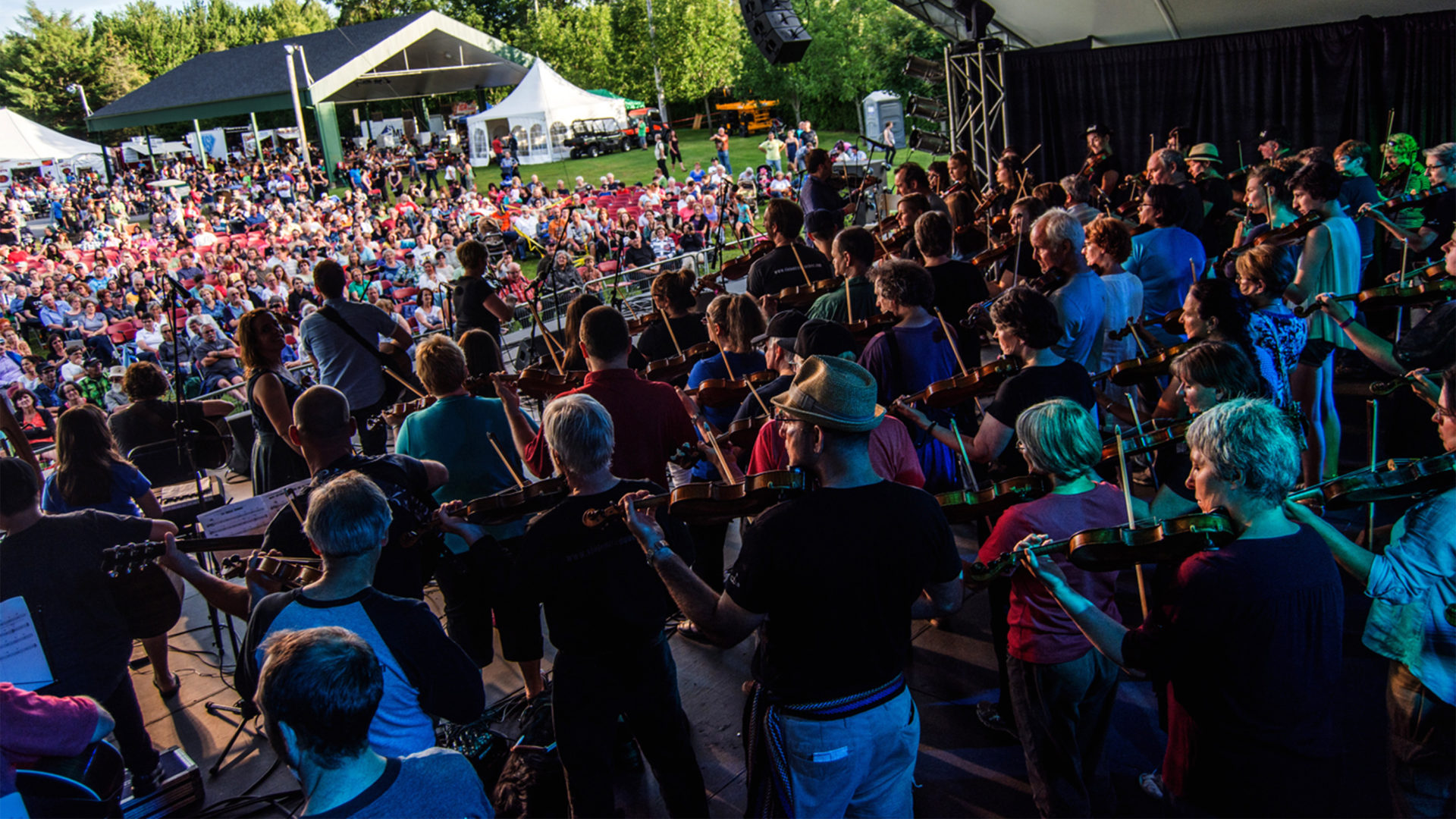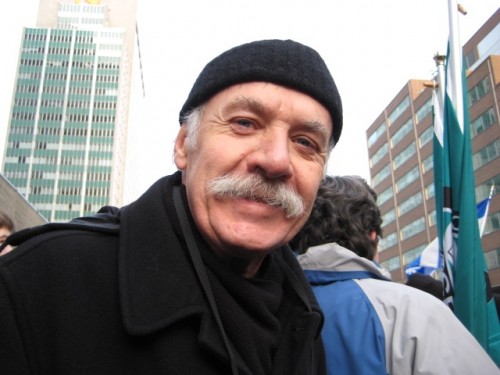CLASSE DE MAÎTRE
Parcours d’un cinéaste en Amérique francophone
Les traditions des violoneux du son des Français d’Amérique
Après des études à l’École des beaux arts de Montréal, de design à Londres et de cinéma à l’Université Columbia de New-York, André Gladu réalise à partir de 1971 plusieurs films documentaires sur le Québec et les cultures francophones d’Amérique : Le reel du pendu (ONF, 1971, 52 min), Le Son des français d’Amérique (Nanouk films, 1974-1980) série de 27 films sur la musique traditionnelle des collectivités francophones d’Amérique coréalisée avec Michel Brault, Les dompteurs de vent (ONF, 1981, 57 min), Marc A. Fortin (Nanouk films, 1983, 52 min), Zarico (ONF, 1984, 57 min), Pellan (Vision 4, 1985, 57 min), Liberty Street Blues (ONF, 1986, 77 min).
Entre 1988 et 1992 il conçoit le projet de Musée de l’image en mouvement de la Cinémathèque québécoise, enseigne le cinéma à l’Université de Montréal et à l’INIS et conçoit l’exposition du 50e de l’ONF. Dès 1992 il se remet à la réalisation : Gilles Vigneault – Portager le rêve (Les porteurs de rêves, 1992, 26 min), Gaston Miron – Les outils du poète (Les Productions du Lundi matin, 1994, 52 min), Le Feu sacré (GPA Productions, 1995, 52 min), La conquête du grand écran (Nanouk films, 1996, 108 min).
De 1997 à 2002 il est nommé producteur responsable du Studio Culture et expérimentation du Programme français de l’ONF. De 2002 à 2006 il est cinéaste-résident à l’ONF où il réalise : Tintamarre – La piste Acadie en Amérique (ONF, 2004, 79 min), Marron – La piste créole en Amérique (ONF, 2006, 85 min). En 2006 il redevient cinéaste indépendant et tourne Mitchif- L’esprit de Riel et Dumont (L’œil documentaire, 2013, 26 min) sélectionné au Festival Présence autochtone/Terres-en-vues (août 2014).
——————————————————————————
Following studies at « École des Beaux-Arts » in Montreal, London School of Printing in England and Columbia University in New York, André Gladu made his first documentary with the National Film Board of Canada, Le Reel du pendu (Hang Man Reel’s), in 1971. From 1974 to 1979 he worked on Le Son des Français d’Amérique, a Radio-Canada (CBC) documentary series on musical traditions of French speaking communities in North America, which he co-directed with Michel Brault. He then made La Pointe du moulin (1979) and Les Dompteurs de vent (1981), The windmiller tradition, followed by two films on Quebec artists, Marc-Aurèle Fortin (1983) and Pellan (1985).
Gladu then set out to explore the music born along the banks of the Mississipi, directing Zarico (1984), Noah (1985), Liberty Street Blues (1986) and Snooks (1993). Upong returning to Quebec, he made the short film Gilles Vigneault : Portager le rêve, followed by Gaston Miron : les outils du poète (1994) and Le feu sacré (1995) on the National School of Circus Arts. In 1996, to underline 100 years of Quebec cinema, he made La conquête du grand écran, co-produced with Nanouk Films and the NFB.
From 1997 to 2002, Gladu headed the NFB’s Culture and Experimentation-ACIC Studio, where he produced, among other films, Le Reel du mégaphone and Suzor-Côté by Serge Giguère, La danse du guerrier by Marie Brodeur, Bacon le film, by Hugo Latulippe, Aviature by Bruno Boulianne and Hubert Reeves :Star Teller by Iolande Cadrin-Rossignol, as well as a collection of shorts call Libres Courts co-produced with Télé-Québec.
Up to 2005 André Gladu has worked on La Piste Amérique, a series of documentaries on the Francophone presence peoples and cultures in North America – Maroon (Louisiana Creoles) 2005 is the second film in the series, following on the heels of Tintamarre (Acadians), released in 2004. Coming soon Bois-Brûlés (Metis of the Plains) and in development Kebek (Québécois). He has started serious researches for a documentary film on the post-Katrina New Orleans reconstruction: Ouragan One Step!
Since 2006 André Gladu has find again his status as an independant film maker. He is actually developping two important documentaries projects dedicated to his working family heritage Speakeasy – l’esprit du Faubourg à m’lasse and to the contemporary Montreal Slam poetry scene La parole sauvage (The Wild Speech – a documentary essay). He also share his time between lecturing and film screening for prestigious institutions like – The American Folklore Society, the American Council for Québec Studies, Department of Anthropology (Laval University, Québec), Le Centre de la Francophonie des Amériques (Québec), McGill Summer School (French Studies) –
He is currently working on a major series of short films dealing with the foundation myths of the Métis Nation of Western North America.


